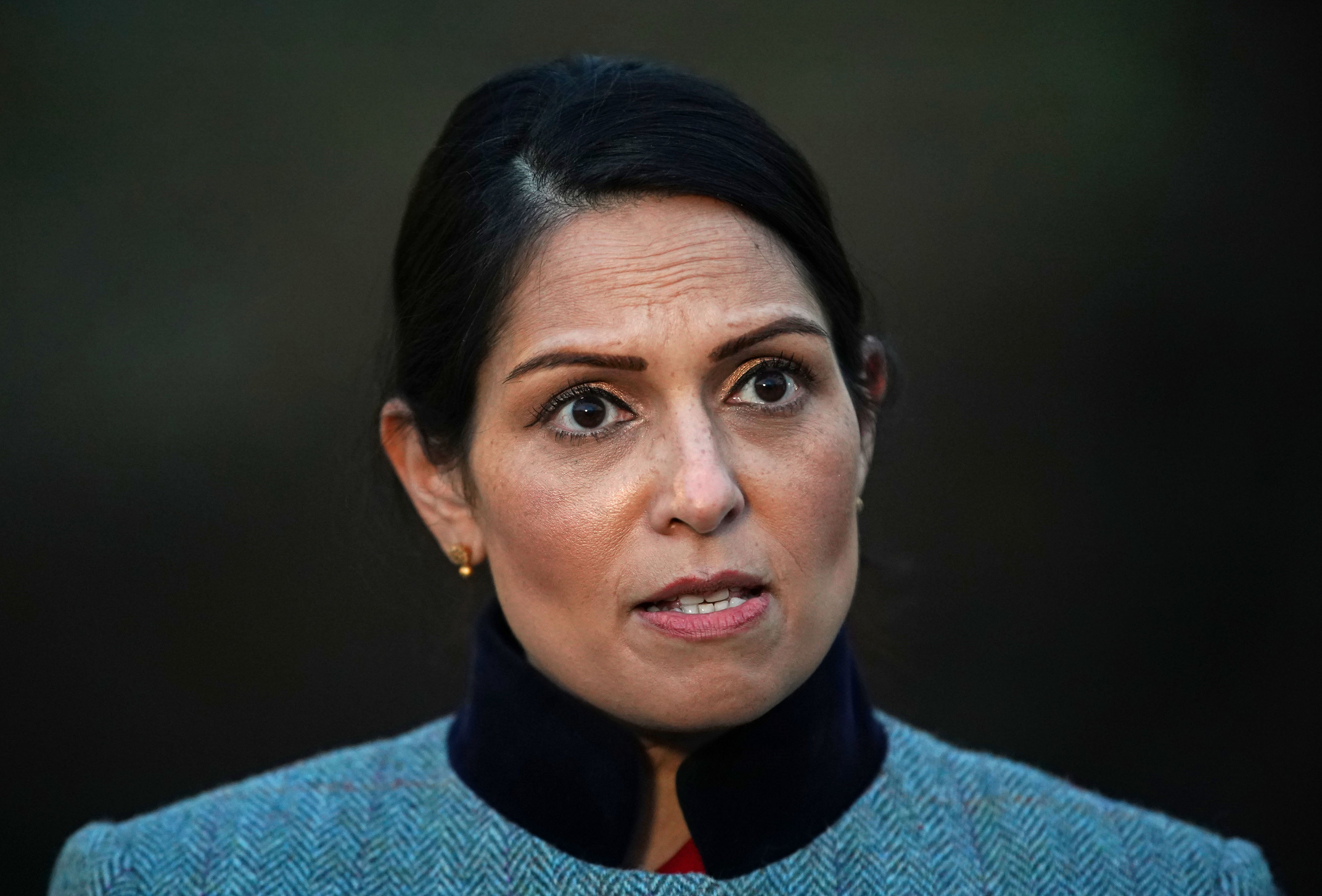Government spending £1.2 million a day housing asylum seekers in hotels
Home Secretary Priti Patel said there was a challenge in finding homes for thousands of refugees.

Your support helps us to tell the story
From reproductive rights to climate change to Big Tech, The Independent is on the ground when the story is developing. Whether it's investigating the financials of Elon Musk's pro-Trump PAC or producing our latest documentary, 'The A Word', which shines a light on the American women fighting for reproductive rights, we know how important it is to parse out the facts from the messaging.
At such a critical moment in US history, we need reporters on the ground. Your donation allows us to keep sending journalists to speak to both sides of the story.
The Independent is trusted by Americans across the entire political spectrum. And unlike many other quality news outlets, we choose not to lock Americans out of our reporting and analysis with paywalls. We believe quality journalism should be available to everyone, paid for by those who can afford it.
Your support makes all the difference.The Government is spending more than a million pounds every day on housing asylum seekers in hotels and is “absolutely struggling” to find permanent accommodation for Afghan refugees, MPs have heard.
Overall, around 25,000 asylum seekers are in hotels, with costs racking up to around £1.2 million a day, the Home Affairs Committee was told.
Home Secretary Priti Patel said there was a challenge in finding homes for thousands of refugees who were still in hotels, months after they were evacuated from Afghanistan.
She told MPs: “We are absolutely struggling with local authorities finding housing accommodation, also we want to make sure that we can move people into work and employment. We want them to rebuild their lives here.
“So there is actually … a cross-government task force, we have a minister for resettlement that leads on this, but we are desperately still trying to pull together different component parts.”
It comes as Conservative MP Tim Loughton told Ms Patel that one Afghan refugee in his constituency with young children was in a hotel with “appalling food” and “terrible conditions”.
He said he was called a troublemaker and told to shut up and leave when he complained.
Ms Patel asked him to provide her with more details, adding that it was an “awful situation”.
We're incredibly grateful to the 300 councils that have already stepped forward to help us, but we can always do with more
Home Office official Tricia Hayes said homes had been found for 4,000 Afghan refugees so far and 12,000 remained in “bridging accommodation”.
The second permanent secretary was told that some local authorities had reported offering accommodation, only for the Home Office to take months to take them up on their offer.
She said that was not what they thought was happening, but that sometimes the type of housing being offered might not be appropriate for a particular family.
There were now improved communication systems, such as a dedicated portal to connect people who could offer accommodation with councils and the Government to help match them with families, she said.
She added: “We’re incredibly grateful to the 300 councils that have already stepped forward to help us, but we can always do with more.
“So it’s a good opportunity just to have a call to arms to councils around the country to engage in the new communication and engagement tools that we’ve created and make places available.”
This is a thoroughly inadequate policy, it is not something that we want, and this is part of the reason why there is a lot of wider work taking place on asylum accommodation
Ms Hayes also said there was work under way to improve how the Government worked with councils on housing asylum seekers more generally.
She said: “We have been doing a lot of work recently with the Local Government Association and with other councils to see how we can develop a new way of working with local authorities for asylum schemes, which recognises, as the Home Secretary said, the absolutely financial as well as policy imperative of cutting the cost that we’re currently incurring in hotels, which is now racking up to about £1.2 million every single day.
“So we’re optimistic that we’re going to be able to broker a new way of working with local government on how we manage these costs.”
Ms Patel added: “This is a thoroughly inadequate policy, it is not something that we want, and this is part of the reason why there is a lot of wider work taking place on asylum accommodation.
“We do not want people in hotels, we are looking at dispersed accommodation.”